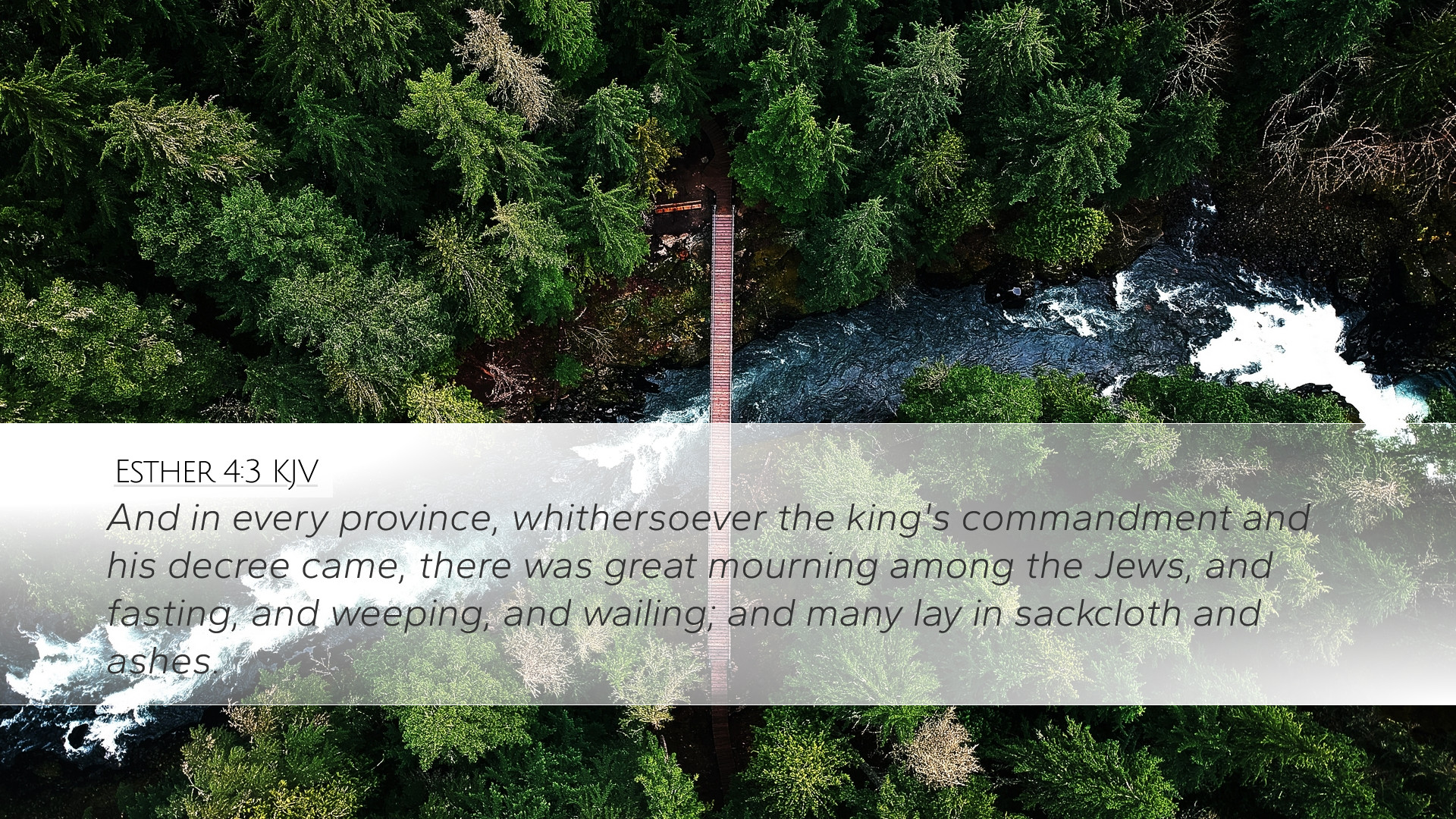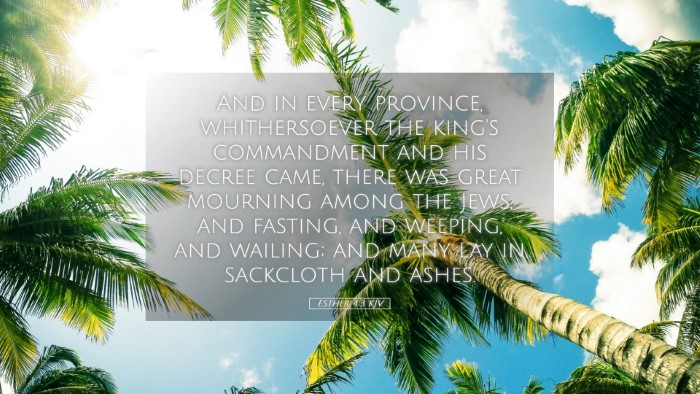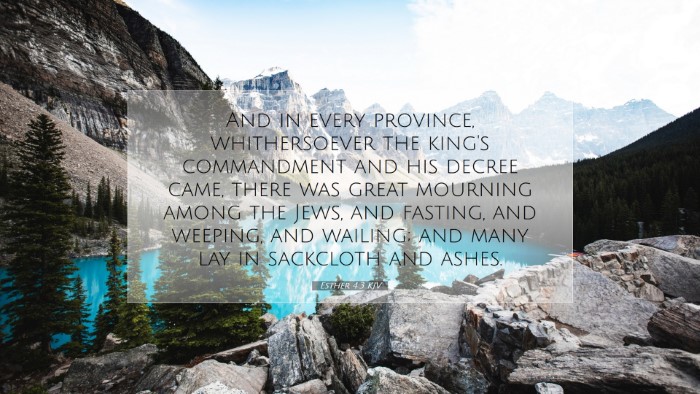Old Testament
Genesis Exodus Leviticus Numbers Deuteronomy Joshua Judges Ruth 1 Samuel 2 Samuel 1 Kings 2 Kings 1 Chronicles 2 Chronicles Ezra Nehemiah Esther Job Psalms Proverbs Ecclesiastes Song of Solomon Isaiah Jeremiah Lamentations Ezekiel Daniel Hosea Joel Amos Obadiah Jonah Micah Nahum Habakkuk Zephaniah Haggai Zechariah MalachiEsther 4:3
Esther 4:3 KJV
And in every province, whithersoever the king's commandment and his decree came, there was great mourning among the Jews, and fasting, and weeping, and wailing; and many lay in sackcloth and ashes.
Esther 4:3 Bible Commentary
Commentary on Esther 4:3
Introduction
The book of Esther is a remarkable narrative celebrating God's providence and the preservation of His people. Esther 4:3 captures a poignant moment where the impact of Haman's decree to annihilate the Jews creates deep mourning among the Jewish community. This commentary synthesizes insights from prominent public domain scholars to explore the implications of this verse.
Verse Analysis
Esther 4:3 (ESV): “And in every province, wherever the king's command and his decree reached, there was great mourning among the Jews, with fasting and weeping and lamenting; and many of them lay in sackcloth and ashes.”
This verse serves as a pivotal verse for understanding the emotional landscape of the Jewish exiles during a time of unprecedented peril.
The Context of Mourning
The verse indicates that the decree issued was widespread, implying the gravity of the situation faced by the Jews. Matthew Henry notes that the mourning spread throughout the provinces, highlighting not just individual despair but a collective response to national grief.
- Collective Grief: This was not an isolated incident but rather a moment of unified sorrow among the Jewish people.
- Significance of Fasting: The act of fasting mentioned signifies deep spiritual distress and a cry for divine intervention.
- Sackcloth and Ashes: These symbols are ancient expressions of mourning, emphasizing the dire circumstances and humility before God.
Theological Implications
Divine Providence: While Esther’s narrative does not explicitly mention God, His unseen hand orchestrates events. Albert Barnes emphasizes that God’s providence is an underlying theme, showing that even in exile, God’s plan can be fulfilled through human actions and reactions.
Importance of Prayer: Fasting and prayer are important elements of the Jewish faith. The desperation faced by the Jews in this moment indicates their acknowledgment of human limitations and the need for divine aid.
Applications for Pastors and Theologians
Emotional Connection in Ministry: Understanding the depth of communal grief can inform how pastors counsel those suffering within their congregations. Fostering a space for lament and expressing sorrow is vital for pastoral care.
The Call to Intercession: Just as the Jews sought to connect with God through fasting, so too are modern believers called to intercede for their communities during times of crisis.
- Encouraging Unity: A call for followers to unify in prayer during communal crises echoes the response of the Jews.
- Highlighting the Importance of Repentance: Fasting often accompanies a recognition of sin, prompting discussions about the necessity of personal and communal repentance in the face of societal issues.
Conclusion
Esther 4:3 exemplifies a moment of extreme crisis leading to profound mourning among the Jewish people. It illustrates the intersection of communal grief and a heartfelt plea for divine intervention. As evidenced in this commentary, scholars like Matthew Henry, Albert Barnes, and Adam Clarke enrich our understanding of the gravity of this situation, urging contemporary readers to reflect on the importance of prayer, mourning, and unity within their own communities. In times of crises, the call for humility and reliance on God remains ever relevant.


